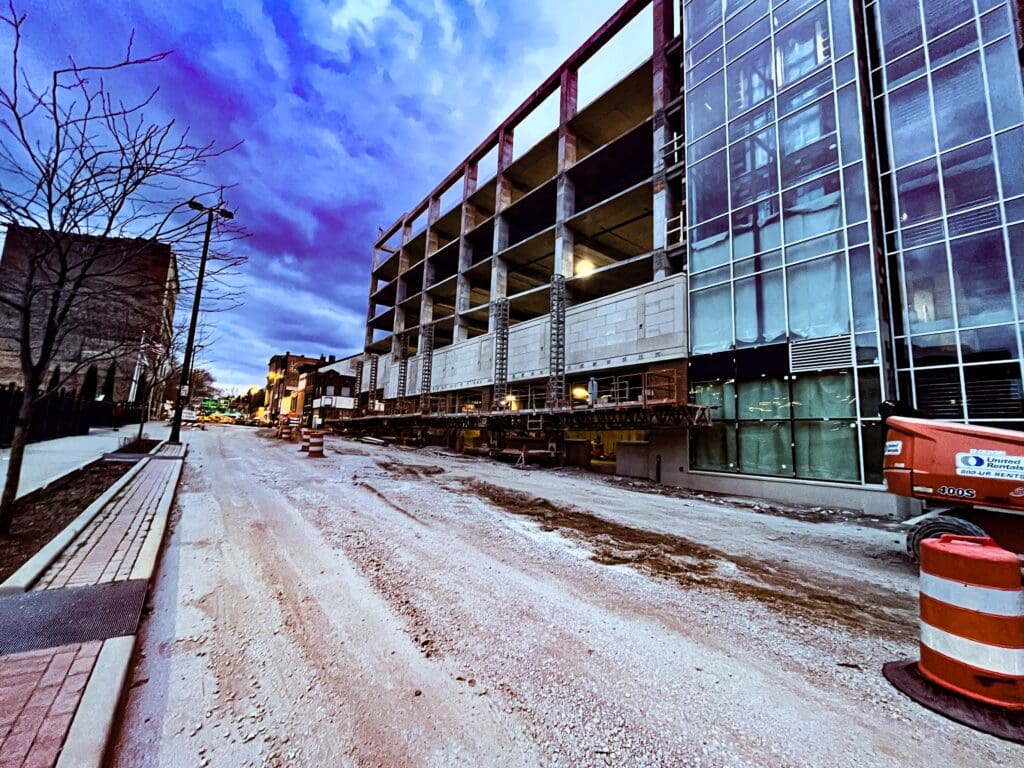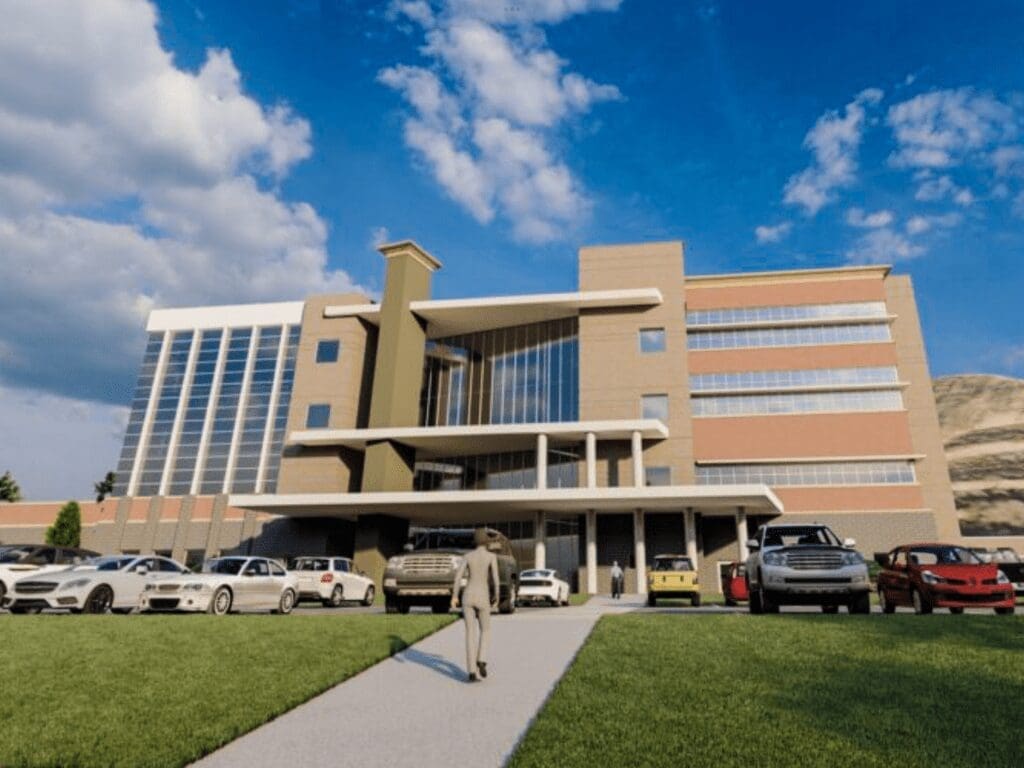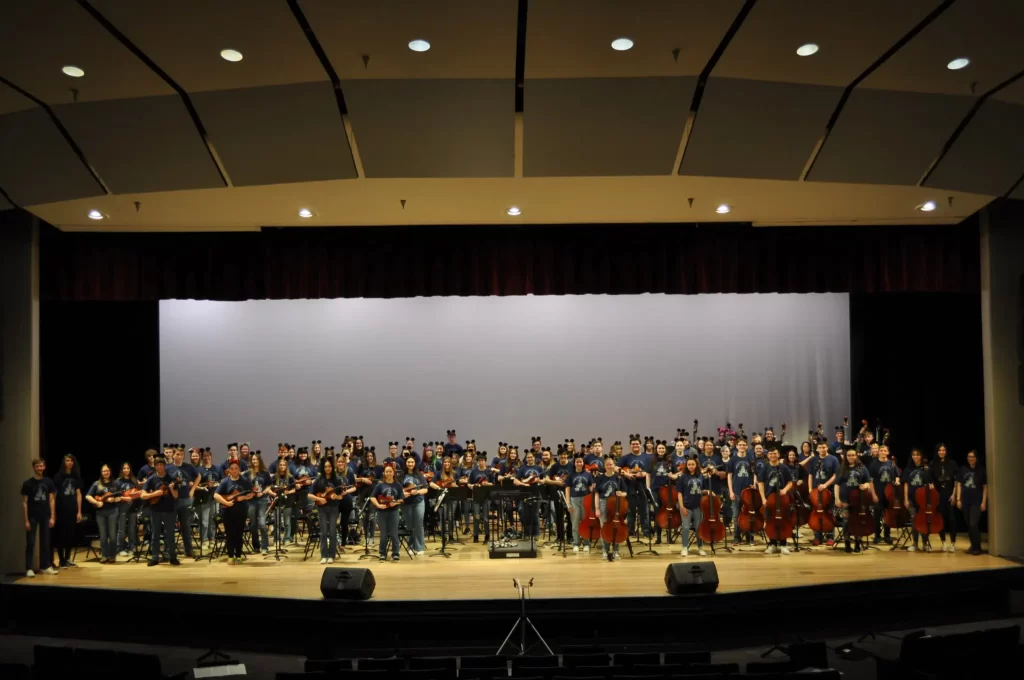
(Author’s Note: As the Artificial Intelligence Revolution begins, I felt it was fitting to ask ChatGPT, one of the most common AI platforms, to write about how Wheeling should take advantage of this transformative technology. This piece, authored by ChatGPT, explores how AI can help our city grow and adapt in the years to come.)
The Prompt: “Write a 1000-word long opinion piece about how and why the Wheeling, W.Va. community needs to harness the power of artificial intelligence to help with our city’s comeback.”
Harnessing the Power of Artificial Intelligence:
A Path Forward for Wheeling’s Comeback
Wheeling, West Virginia, once a thriving industrial hub nestled along the Ohio River, has seen its fortunes change over the years. With the decline of manufacturing and the steel industry, our city has faced significant economic challenges. However, Wheeling is no stranger to resilience. From rebuilding after fires to adapting through industrial shifts, we have always been a community of perseverance. Now, as we look to revitalize our city and steer it toward a new era of growth and prosperity, we must embrace the technological opportunities before us—chief among them is artificial intelligence (AI).
Artificial intelligence, which refers to machines or systems that simulate human intelligence to perform tasks such as decision-making, problem-solving, and learning, is not just for Silicon Valley tech giants. Communities like ours can tap into AI to help with infrastructure, economic revitalization, education, healthcare, and other vital areas. AI is more than a buzzword—it’s a tool that, when wielded properly, can reshape the future of our town and enable us to carve a niche in an increasingly tech-driven world.
Here’s why and how Wheeling can leverage AI to assist in its resurgence:

1. Revitalizing Our Economy with Smarter Workforce Development
One of Wheeling’s primary challenges is adapting its workforce to meet modern needs. For years, we relied on manufacturing and labor-intensive industries, but today, much of the growth comes from technology, healthcare, and knowledge-based sectors. AI can help retrain workers and equip the younger generation with skills that will prepare them for tomorrow’s jobs.
AI-powered learning platforms, for example, can create personalized training programs tailored to an individual’s background, strengths, and interests. By integrating AI into workforce development initiatives, Wheeling could offer retraining programs that are more efficient and tailored, ensuring that our citizens transition into new industries with ease. Furthermore, AI can help identify emerging job markets and recommend what sectors to invest in to spur economic growth, whether it’s green technology, remote work opportunities, or specialized industries that can thrive in the Mid-Ohio Valley.
Local businesses can also benefit from AI, using it to automate administrative tasks, improve supply chain management, and even forecast demand for products and services more accurately. With AI’s assistance, small businesses in Wheeling could become more competitive, reducing costs and driving innovation in a city hungry for new enterprise.

2. Improving City Infrastructure and Urban Planning
Wheeling’s infrastructure is aging, and revitalizing it is no small task. AI can be an essential tool in modernizing our roads, utilities, and public services more efficiently and at a lower cost. For instance, AI can be used to analyze traffic patterns to optimize the flow of vehicles and reduce congestion. This could help not only improve safety but also ensure that new construction projects or road improvements are done where they are most needed.
Additionally, AI can support better urban planning. For example, predictive algorithms can analyze population trends, economic growth, and even environmental factors, helping city planners make informed decisions about where to build housing, schools, or green spaces. It can also assist with smart energy management, by predicting the demand for electricity or water and suggesting efficient ways to manage resources. These AI-driven insights would enable Wheeling to revitalize its infrastructure in a more sustainable and forward-thinking manner, attracting new residents and businesses in the process.

3. Enhancing Healthcare Access and Delivery
One area where AI could significantly impact our community is in healthcare. Rural areas like Wheeling often face challenges with access to specialists, long wait times, and overburdened healthcare systems. AI could change that dynamic.
Through telemedicine platforms enhanced by AI, patients could receive initial consultations, diagnoses, or even health monitoring without needing to travel long distances. AI could also help healthcare providers analyze patient data more quickly and accurately, offering predictive insights into patient health and allowing for more personalized treatment plans. This would be particularly beneficial in managing chronic conditions, which are prevalent in West Virginia. Additionally, AI could improve administrative efficiency, reducing the burden on healthcare professionals, and freeing up time for patient care.
By implementing AI-driven healthcare initiatives, Wheeling could reduce healthcare disparities and improve the overall health of its residents. Healthier citizens lead to a more vibrant, productive community—essential for Wheeling’s comeback.

4. Education: Preparing the Next Generation
For Wheeling to build a sustainable future, we must invest in education, especially as technology and AI reshape industries worldwide. Our schools need to integrate AI into the curriculum, not just as a subject of study but as a tool to enhance learning. AI can offer personalized learning experiences, adapt teaching methods to individual student needs, and ensure no child is left behind.
AI-powered tools could assist teachers by grading assignments, identifying students who are struggling, and suggesting tailored interventions. With such tools, teachers can focus more on creative and critical thinking skills, while AI helps ensure that every student is reaching their full potential. Moreover, AI can help connect students in Wheeling with global opportunities, whether it’s through online courses, virtual internships, or collaboration with other communities. By giving our youth access to the best educational tools, we’re investing in a workforce that will lead Wheeling’s resurgence in the years to come.

5. Promoting Tourism and Local Culture
Wheeling has a rich history and culture that we should be proud to showcase. AI can help promote tourism by offering personalized visitor experiences and even smart tourism apps that provide recommendations based on visitor preferences. Imagine AI-powered apps that guide tourists through our historic landmarks, explaining the significance of each site in real-time, or virtual tours that showcase the city’s potential to those who may want to invest in our community.
Local businesses, artisans, and cultural organizations could also benefit from AI-driven marketing tools, which can analyze consumer trends and target visitors more effectively. AI could help craft a stronger, more modern identity for Wheeling, allowing us to market our city to tourists and investors alike as a destination that blends historical charm with forward-thinking innovation.

6. Bridging Digital and Economic Divides
One of the key challenges facing Wheeling and similar communities is the digital divide. Many residents still lack access to high-speed internet and digital literacy skills. As we move forward with AI integration, it is crucial to ensure that all citizens are included in this transformation. Investments in digital infrastructure, such as expanding broadband access, are essential to ensure that no one is left behind in the AI-driven future.
Public initiatives could provide training in digital literacy and AI technologies, enabling residents to access new economic opportunities. By bridging this digital divide, Wheeling can ensure that AI’s benefits are shared equitably, helping to lift more families out of poverty and into prosperity.

Conclusion: A Path to Resilience and Growth
Wheeling has the potential to harness AI as a powerful engine for its comeback. By using AI to drive workforce development, infrastructure modernization, healthcare improvements, educational enhancement, and tourism promotion, we can build a more resilient and prosperous future for our city. As a community, we need to recognize that embracing AI is not about replacing jobs or sidelining our rich history—it’s about complementing our strengths and addressing our challenges with cutting-edge tools. Through strategic use of AI, Wheeling can position itself as a forward-thinking city, ready to lead in the 21st century and beyond.

